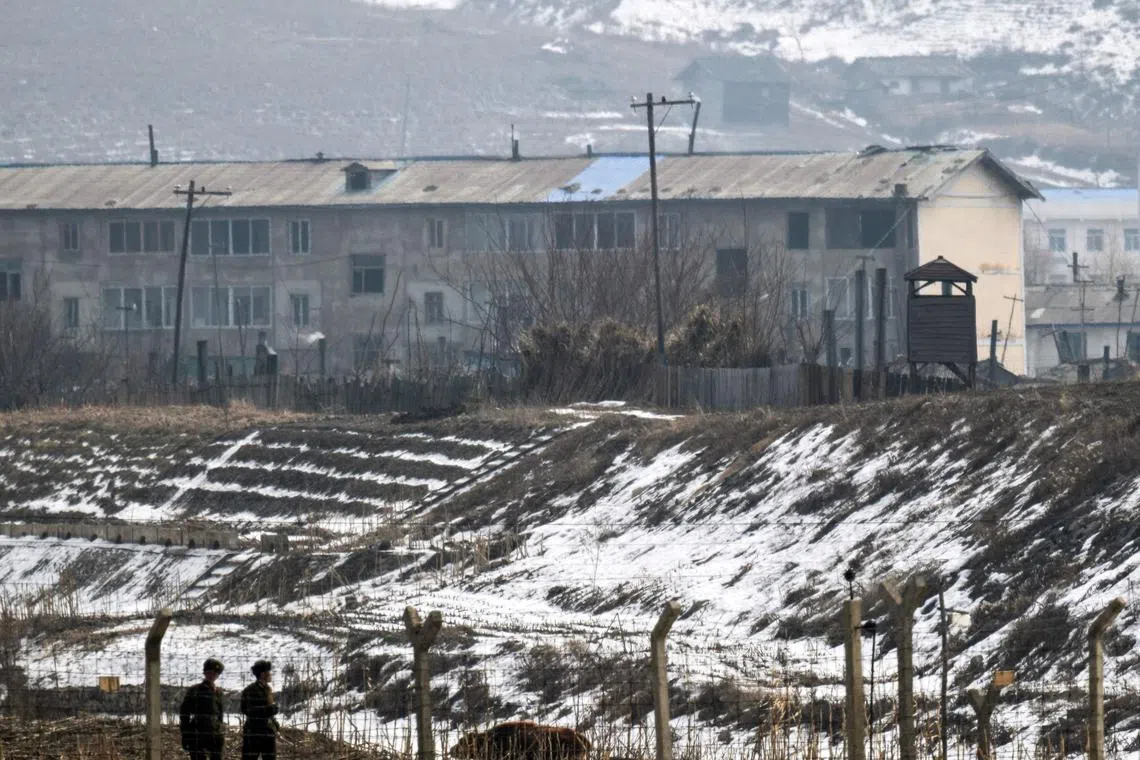North Korean kids face death penalty for distributing K-dramas: Seoul envoy to UN
Sign up now: Get ST's newsletters delivered to your inbox

South Korean Ambassador to the UN Hwang Joon-kook said children in North Korea face “egregious human rights violations”.
PHOTO: AFP
Follow topic:
NEW YORK - South Korean Ambassador to the UN Hwang Joon-kook said children in North Korea face grave human rights abuses, including receiving the death penalty for distributing South Korean dramas, during a UN Security Council meeting at the UN headquarters in New York on April 3.
During the UNSC Briefing on Children and Armed Conflict, Mr Hwang said children in North Korea face “egregious human rights violations”, despite North Korea being a signatory country to the Convention on the Rights of the Child.
“According to numerous public sources, including North Korean defectors’ testimonies, children in the DPRK are exposed to egregious human rights violations, including the death penalty for distributing South Korean dramas, detention in political prisons alongside their family members as collective punishment, and widespread use of child labour,” said Mr Hwang, referring to North Korea by its official name, the Democratic People’s Republic of Korea. He added that North Korean children are facing a humanitarian crisis as the country’s leadership spends its resources on nuclear and ballistic missile programmes and luxury items.
Citing a report published by Unicef, the World Health Organisation and the World Bank Group, Mr Hwang noted that “17 per cent of children in the DPRK are reported to suffer from stunted growth due to malnourishment”.
Focusing elsewhere, he argued that children affected by armed conflict are entitled to “special respect and protection”, according to international humanitarian law, citing the conflict occurring in the Gaza Strip between Israel and Hamas, where seven aid workers from non-profit organisation World Central Kitchen were recently killed in an Israeli air strike.
“In the face of these dismaying challenges, it is imperative, first and foremost, that the Security Council stands firm on its zero-tolerance against the denial of humanitarian access to children,” Mr Hwang said. THE KOREA HERALD/ASIA NEWS NETWORK

